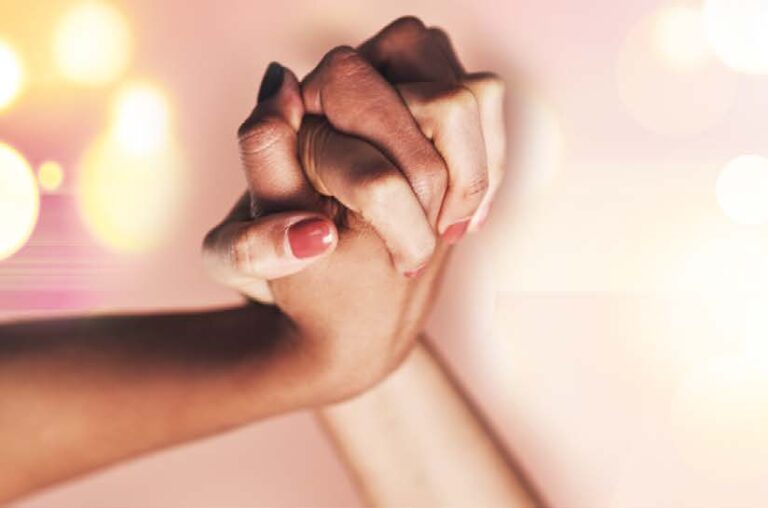By Melissa Fox
When Gloria Dill was diagnosed with breast cancer in 1990, cancer was considered the elephant in the room— best left undiscussed. “Just the mention of cancer was so secretive,” says Dill.
It was common for this kind of diagnosis to be met with fear and speculation. It would be years before the Internet would reach its current status, where a wealth of knowledge is literally at your fingertips.
With precious little information to be had, patients on the island were left to wait, wonder and worry about the road that lay ahead. The same was true for Dill until she and a friend stumbled upon Just Between Us, a word-of-mouth breast cancer support group founded in 1991 by Shirley Humphreys. She was soon joined by Marion Holland (both of whom have since passed).
“There wasn’t a big billboard where you could see there was a support group,” Dill says, which might explain how the small collective was able to bond so tightly over their shared experiences. In its early days, either Humphreys or Holland would open their homes as they’d opened their hearts, allowing the growing group to meet and discuss treatments, side effects, and other concerns in a comfortable setting.
Soon, the women of Just Between Us would find a regular meeting place at the Nurses Residences on Berry Hill Road.
“We were the youngest at the time,” Dill recalls of herself and her friend. The other group members were aged 55 and older. As a young working mother with no insight into what a life with cancer really meant, these women became a huge source of support and inspiration, for more reasons than one.
“Looking at them, knowing what they were going through and what they had gone through, I thought, ‘If these ladies can do it at their age, I can surely do it at my age’,” she says. “Everyone thought of cancer as a death sentence. No one survives. These ladies were a true testament that you can live through cancer as a survivor for many years to come. Just them being in that room was proof. I’m always inspired that I can pass that hope on to others.”
Buoyed by the evidence of the light at the end of the tunnel, Dill travelled regularly to the United States as part of her treatment regime, and each time made a point to return with whatever informational material she could get her hands on. The practice became common among women in the group, all of whom were happy to do their part in spreading awareness for those who lacked the resources.
A two-time breast cancer survivor, Dill took over the reins as president of Just Between Us in 2013. She continues to speak passionately about the spark of hope provided for women on their cancer journey, and offers grateful praise to the Bermuda Cancer and Health Centre (BCHC), an organization dedicated to educating the community and bringing top quality medical care to the island.
In the 80s and 90s, Bermuda wasn’t equipped with the technology to provide the necessary treatments, and islanders like Dill were forced to use sick leave and vacation time to complete their therapy overseas, with the added hope that insurance, whether governmental or through an employer, would be adequate enough to cover any expenses incurred.
Through the fundraising efforts of BCHC and events like Relay for Life, Bermuda is now home to a radiation therapy machine, which means “women can stay connected with family; you don’t have to lose time at work,” Dill says. She adds: “I would have been able to carry on with the day to day, be with my son, not lose out on being around family and friends supporting me here, and being also in a place that was already familiar—my home.”
Today, being a cancer patient in Bermuda is a completely different experience. “It’s like you’re in Boston because the resource is right there. Your imaging is sent straight to Boston, there’s no having to send it by FedEX. It’s seamless. I think BCHC has done a great job.” Though it started as a safe community where women over the age of 18 with breast cancer could swap stories (providing assistance to minors is not in the group’s remit),
Dill explains that Just Between Us “doesn’t discriminate.” She says, “To us, cancer is cancer. It doesn’t matter what part of your body it’s in. It doesn’t matter if you’re part of the group, active, or not. If there is a woman we are made aware of, we assist where we can.”
From raising funds for gift vouchers to help offset the cost of groceries or electricity bills to offering a shoulder to cry on or a different perspective, “we don’t mind sharing our story,” Dill says.
Since the beginning of the pandemic, the group has had to pause in-person meetings, but they continue to get together on Zoom, with the occasional gathering, provided the location meets and exceeds their expectations for health and safety protocols.
“We also have a WhatsApp group, so we send inspirational messages to each other,’’ Dill says, smiling. “I hear my phone going off, pinging at six o’clock in the morning with inspirational messages.”
It’s been 20 years since Dill received the devastating blow, and cancer is no longer considered a taboo topic. Time may not soften its impact. But thanks to the efforts of women like Humphreys and Holland, stories may stay “Just Between Us,” but you will never have to take that journey alone.
If you are or know a woman over the age of 18 who would like to learn more about Just Between Us, please call Gloria Dill on 332 7274.

